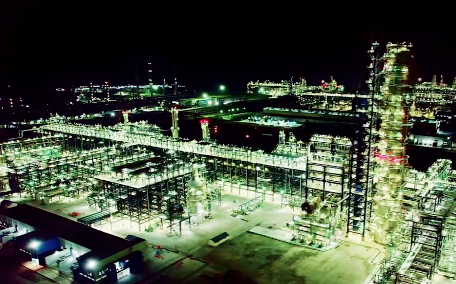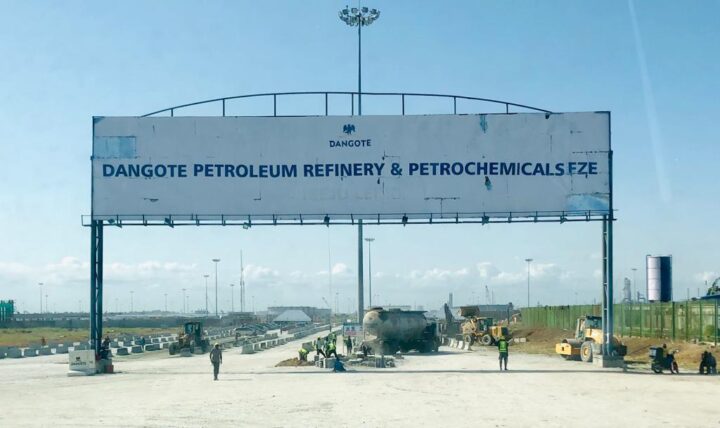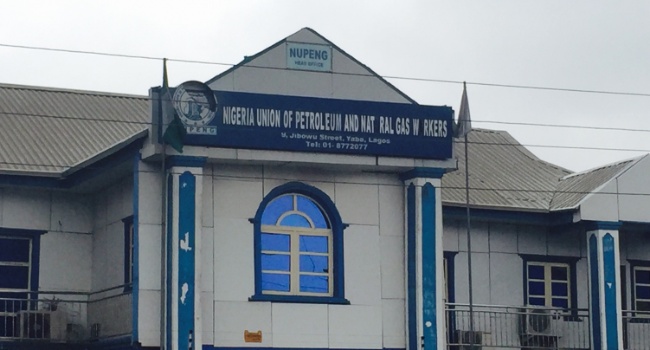The Nigerian Midstream and Downstream Petroleum Regulatory Authority (NMDPRA) says it issued oil licences to the Nigerian National Petroleum Company (NNPC) Limited and oil marketers to address petroleum product shortfalls in the country.
NMDPRA informed Inyang Ekwo, the presiding judge, through a counter affidavit filed and deposed to by Idris Musa, a senior regulatory officer in the authority, in response to a suit brought by Dangote Refinery and Petrochemicals FZE.
According to NAN, Dangote refinery filed the application, marked FHC/ABJ/CS/1324/2024, against NMDPRA and NNPC as 1st and 2nd defendants, on September 6, 2024.
Dangote refinery had requested a federal high court in Abuja to nullify the import licences issued to NNPC, Matrix Petroleum Services Limited, A. A. Rano Limited, and four other oil companies.
Advertisement
The company asked the court to rule that NMDPRA violated Sections 317(8) and (9) of the Petroleum Industry Act (PIA) by granting licences for petroleum product importation.
However, in an application dated and filed on December 13, 2024, NMDPRA said the current production of Dangote refinery is yet to meet the national daily petroleum products sufficiency requirement.
“Consequently, and in compliance with Section 317 [9] of the PIA (Petroleum Industry Act), the 1st defendant (NMDPRA) issued licences to import petroleum products to bridge product shortfalls to companies with good track records of international products trading,” Musa said.
Advertisement
‘NMDPRA CLOSELY MONITORING DANGOTE REFINERY’S OUTPUT TO ENSURE PETROLEUM SUFFICIENCY’
Musa said NMDPRA actively monitors developments to determine when locally refined products will meet Nigeria’s daily petroleum products needs.
He added that the agency ensures competition, prevents abuse of dominant positions, and stops monopolies in Nigeria’s oil and gas sector.
“The Import volume to be allocated between participants (that is licensed importers) by the 1st defendant is based on the criteria to be setout taking into account the respective refining output in the preceding quarter of the year, the share of active wholesale customers, competitive pricing and prudent supply, storage and distribution track records,” Musa said.
‘NMDPRA DISPUTES DANGOTE REFINERY’S AGO PRODUCTION CAPACITY’
Musa said the regulator cannot depend on the Dangote refinery’s claims on diesel and jet oil production capacity because it lacked scientific evidence.
Advertisement
Consequently, he said NMDPRA decided against giving Dangote refinery the sole right to cater for the Nigerian market and having considered the current state of affairs and oil production output at the preceding quarter before the filing of the suit, the regulator felt it will be premature and brash to suspend the importation of petroleum products for other entities.
The NMDPRA officer also said the present market structure of local refining would result in a monopoly with its pricing implications and put the nation’s energy security at risk.
He said Nigeria’s energy security is assured only through multiple supply sources given the “present market structure of local refining.”
“The 1st defendant is however optimistic that the anticipated operationalisation of NNPCL’s four refineries in addition to increased output from the four modular refineries will improve the much-required competition in local refining, thereby mitigating the overarching concern of the creation of monopoly and its implication on energy security and pricing,” Musa said.
Advertisement
‘NMDPRA SAYS 0.5 PERCENT LEVY IS JUSTIFIED’
Musa also addressed Dangote refinery’s argument against a 0.5 percent levy demanded by NMDPRA.
He said it is justified and complies with Sections 47(2)(c) and 52(7) of the PIA, adding that the levy must be paid at wholesale points by customers, not producers, and Dangote refinery is aware.
Advertisement
“The plaintiff (Dangote) cannot claim not to be bound by local laws due to its being in a free zone, whilst seeking to take the benefits of the same local laws,” he said.
“The plaintiff is to remit such levies to the 1st defendant not later than 21 days following the month of the sale.
Advertisement
“I know as a fact that it was when the plaintiff failed to communicate its record of sales of petroleum products or natural gas and remit the statutory levies of 0.5% amongst others that the 1st defendant was constrained to issue a letter dated 10th June, 2024 marked as ‘Exhibit C’ in paragraph 22 of the plaintiffs affidavit.”
Musa explained that the Midstream and Downstream Petroleum Fees Regulations, 2024, gazetted on November 4, 2024, specify the levy payment procedure.
Advertisement
He said the Dangote Industries Free Zone Regulation 2020 does not exempt the company from paying levies, taxes, or rates to all levels of government in Nigeria.
The official added that refined products from the refinery are not restricted to sales within Nigeria alone.
“Rather, the plaintiff has stated through its alter ego that it need not sell products to only Nigerians, but can sell to other customers globally where there is a demand for same,” Musa said.
‘NMDPRA DENIES CONSPIRACY ALLEGATIONS AGAINST DANGOTE REFINERY’
Musa said Dangote Refinery’s production of petroleum products in Nigeria does not justify denying others licences to import products.
“I know as a fact that the plaintiff does not have the capacity yet, to meet the entire local demand of refined petroleum products based on the count and readiness of its licensed and commissioned production lines,” he said.
“To ensure availability of products to meet the market demand in Nigeria, it is therefore the responsibility of the 1st Defendant to license qualified entities to cater for any shortfall and meet domestic demand.
“The 1st defendant granted licences to the 2nd to 7th defendants as companies with proven track records of international crude oil and petroleum products trading in line with the provisions of Section 317(8) and (9) of the PIA 2021.
“It is to meet the shortfall in the domestic supply so as to avoid the hardship and sufferings which inadequate products availability often causes on Nigerians.”
Musa dismissed allegations of a “grand conspiracy” against Dangote refinery, saying the plaintiff failed to provide evidence for this claim.
In November 2024, NNPC asked the court to dismiss the suit filed by Dangote refinery seeking to revoke its import licence.
Add a comment









